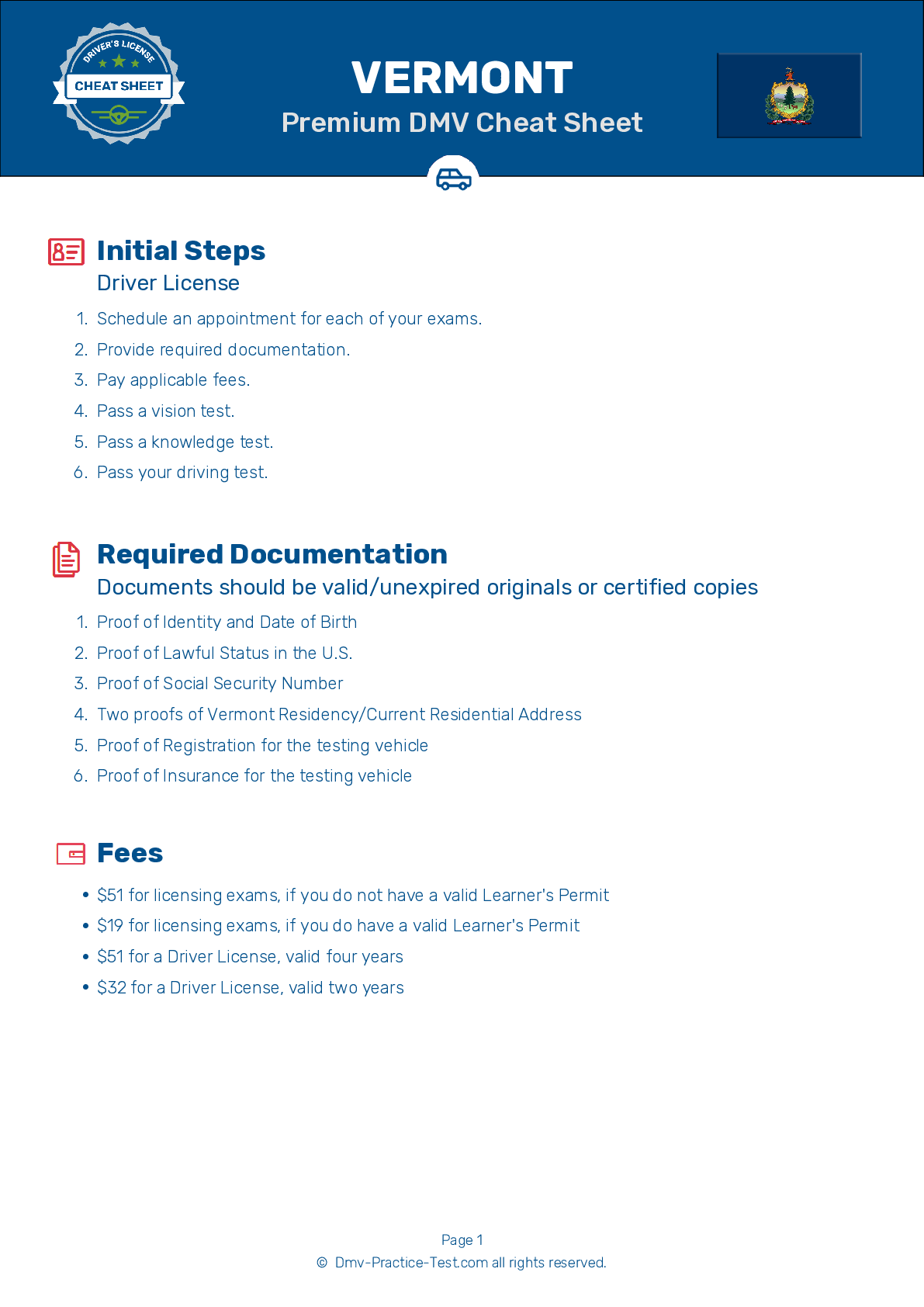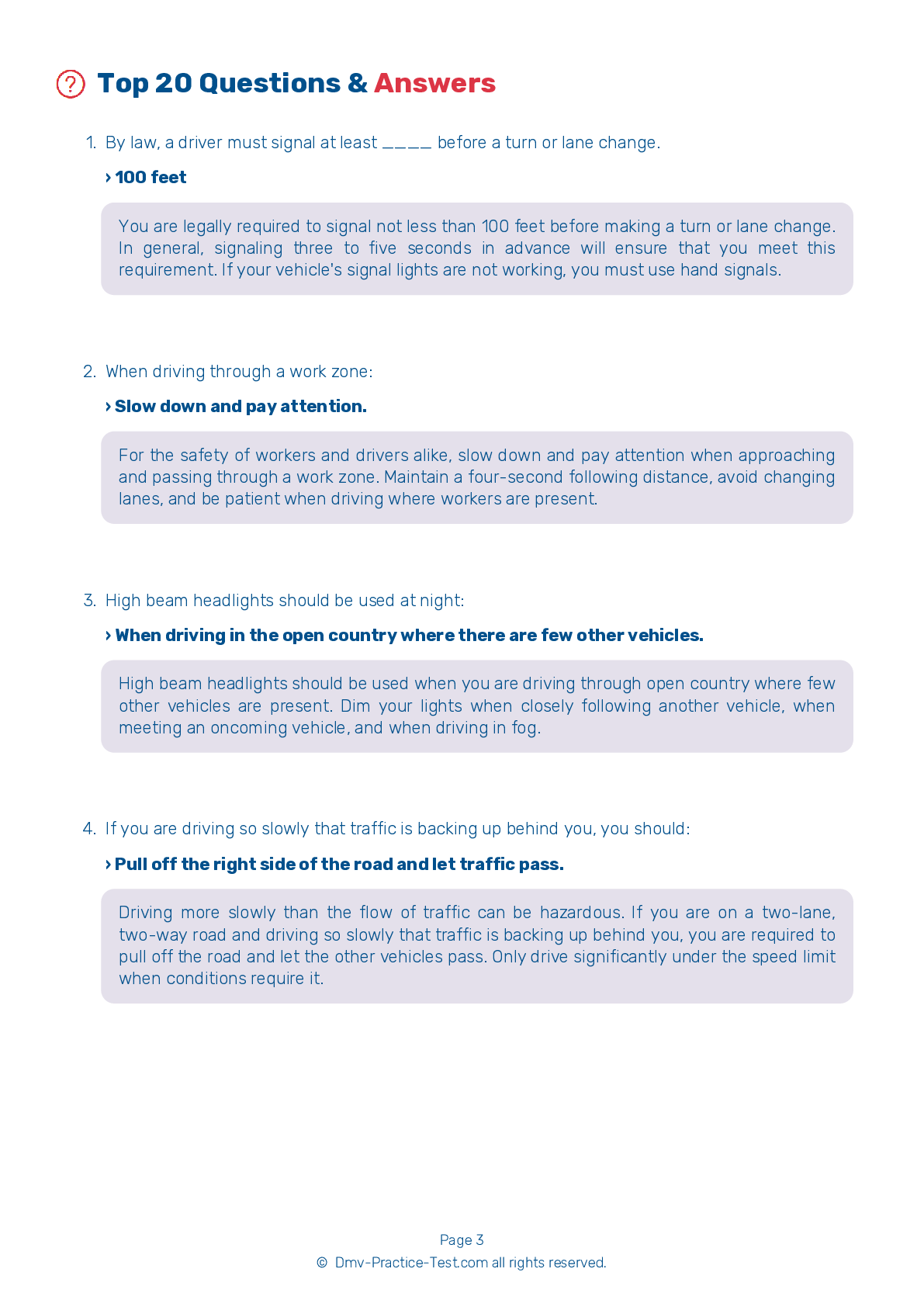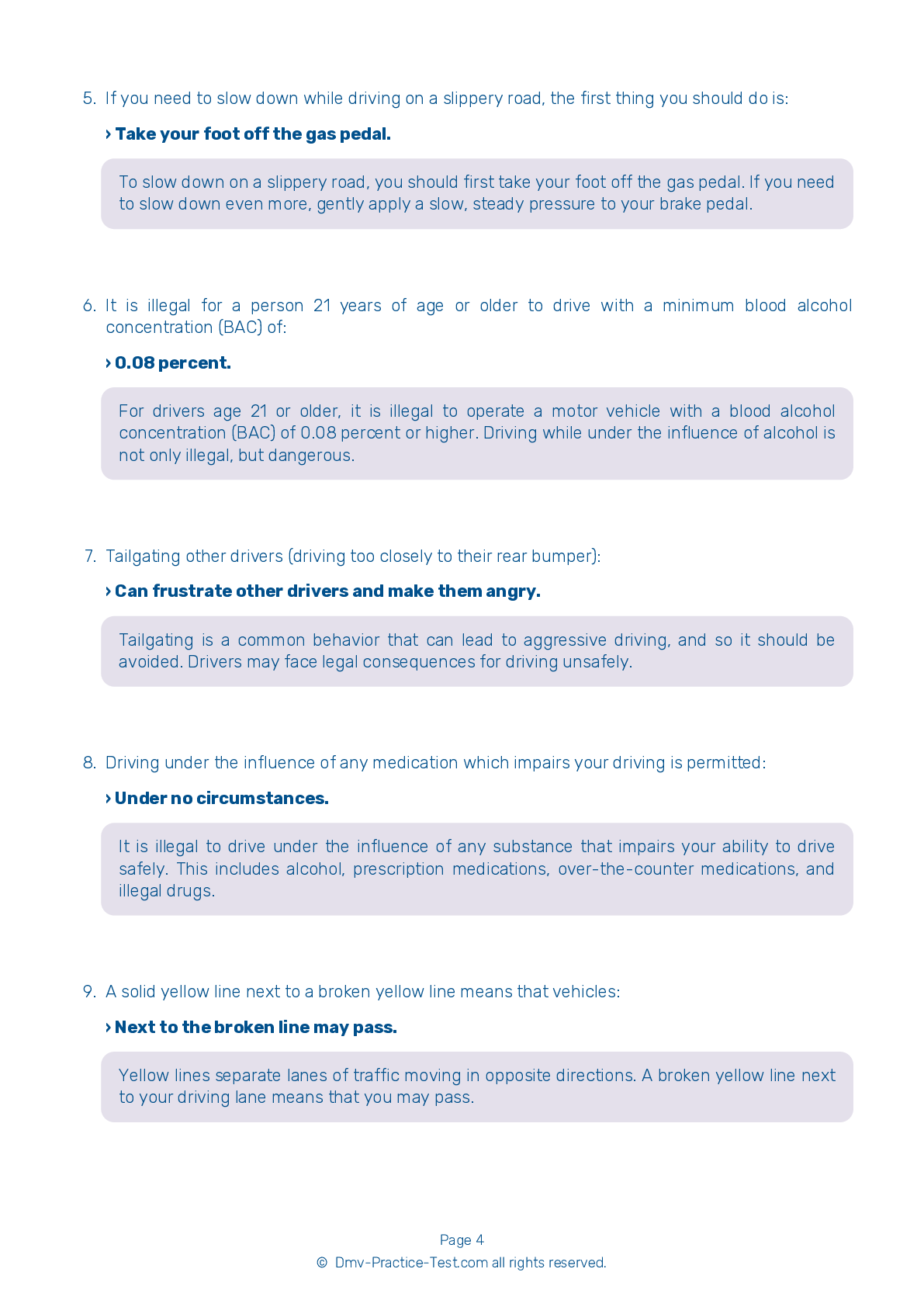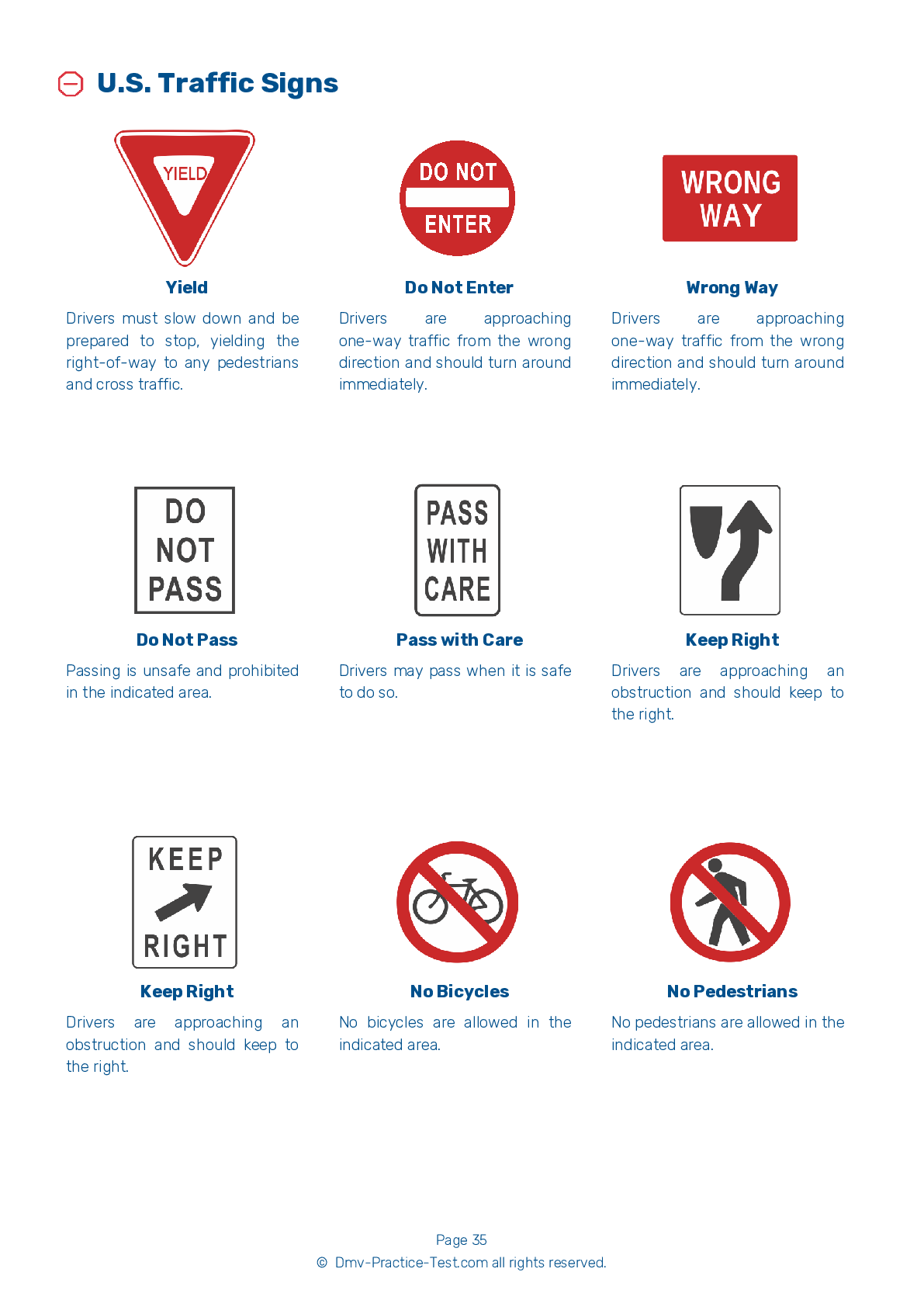FREE Vermont DMV Practice Test #8 Page 3 of 3
The Vermont DMV practise examinations have been updated for January 2026. It includes questions based on the Vermont Driver Handbook's most significant traffic signals and legislation for 2026. Use actual questions that are very similar (often identical!) to the DMV driving permit test and driver's licence exam to study for the DMV driving permit test and driver's licence exam.
On the practise exam, each question gets a tip and explanation to help you remember the concepts. The written component of the official Vermont DMV test will include questions about traffic rules, traffic signs, and driving statutes, as well as knowledge from the Driver Handbook.
To obtain a passing grade, you must correctly answer 16 of the 20 questions. Use the practise exam provided by the Vermont Department of Motor Vehicles to help you prepare for your instruction permit or driver's licence.
The DMV exam is available in several languages.
Using any kind of testing assistance will result in an automatic fail, and the DMV may take additional action against your driver's licence, so stay away from it.
14 . Drivers who eat and drink while driving:
Choosing to eat, drink, or smoke while driving is dangerous because these actions require a driver to remove their hands from the wheel and their eyes from the road. Drivers who engage in distracting activities while driving have trouble staying in their lanes and controlling their vehicles.
15 . To safely pass a bicycle, you should:
When passing a bicyclist, slow down and give them as much space as you can. Bicyclists have much less protection than drivers of motor vehicles and they should not be crowded. Passing a bicycle too quickly can shift the bicyclist off-course.
16 . You notice that the driver in the vehicle ahead of you is driving with one hand and talking to a passenger. You should:
Do not become distracted by looking at passengers, attempting to find something in your vehicle, looking at reading material, sightseeing, or daydreaming while driving. If a driver near you seems distracted, allow them extra space because the risk of an accident is increased by their inattentiveness.
17 . The best way to deal with tailgaters is to:
Check the traffic behind you several times a minute to know if another driver is tailgating, approaching too fast, or trying to pass. If another car is following you too closely, slow down and let it pass. Most rear-end collisions are caused by vehicles following too closely.
18 . The effect that alcohol has on your reflexes and judgment:
Consuming any type of alcohol can have negative effects on your reflexes and judgment. It does not matter which type of alcohol is consumed, only how much alcohol has entered a person's bloodstream.
19 . What might happen when alcohol is combined with another drug?
Consuming both alcohol and another drug may enhance the effects of both. For example, taking one drink when you are also using a cold remedy could affect you as if you have had several drinks.
20 . What is the only way to reduce your blood alcohol concentration (BAC)?
The only method that effectively reduces your BAC is to not drink alcohol for a period of time. Coffee, exercise, and cold showers cannot reduce your BAC or change the effects of alcohol. They can help you remain awake, but they cannot change your BAC or make you sober.
See the exact questions that will be on the 2026 Vermont DMV exam.
99.2% of people who use the cheat sheet pass the FIRST TIME
LT gives us an insight on how the cheat sheet provided her with all the study questions she needed before taking her test.
Joe initially studied with the handbook and failed his test, he eventually found us online, studied and pass his test the first time around.
2026 Vermont | Frequently Asked Questions
1. Not checking mirrors and blind spots before changing lanes or turning.
2. Speeding or driving too slowly for the conditions or posted speed limit.
3. Not coming to a complete stop at stop signs or red lights.
4. Incorrect signalling or not signalling at all.
5. Poor parking, especially parallel parking.
Remember, practice makes perfect, so take time to hone your skills.



